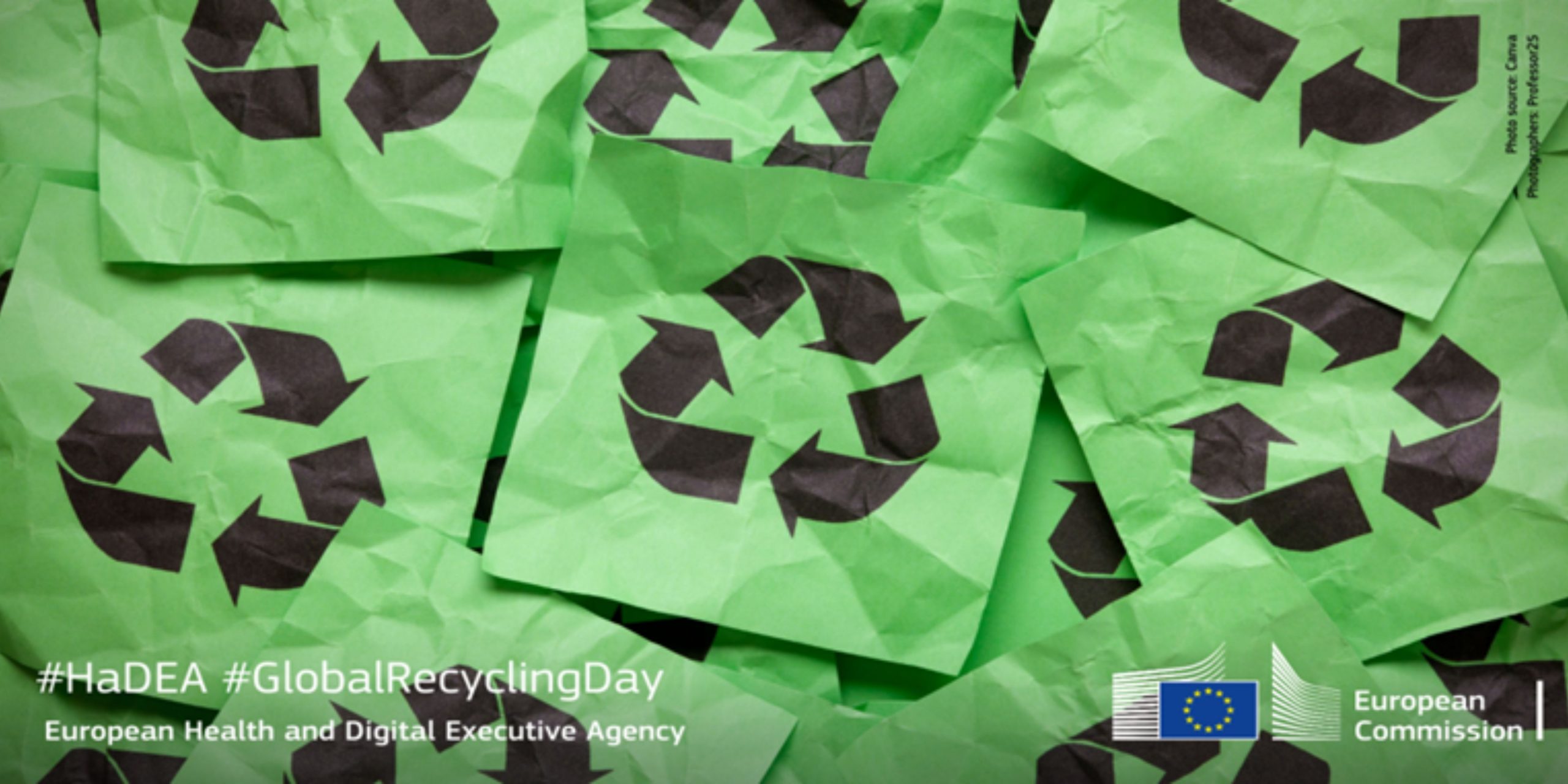Global Recycling Day was established as a United Nations recognised day in 2018 and is celebrated on 18 March.
The Global Recycling Day aims to encourage a more efficient use of natural resources. This is also a core element of the European Green Deal and related policy initiatives, such as the Circular Economy Action Plan and the recent proposal for a Regulation on Ecodesign for Sustainable Products.
EU-funded research and innovation projects are contributing to the development of more circular technologies and practices in industrial ecosystems, and eventually decreasing resource shortages and supply risks in Europe.
Explore some Horizon 2020 projects managed by HaDEA addressing these challenges:
- RECLAIMaims to showcase strategies and technologies that enable the re-use of industrial equipment whilst improving performance and productivity. The project is using digital analytics, Internet of Things (IoT), and circular economy strategies to develop algorithms for a novel Decision Support Framework (DSF) tool. The DSF optimises refurbishment and re-manufacturing of electromechanical machines and robotics, saving valuable resources.
- LEVEL-UPaims to develop a holistic operational and refurbishment framework applicable both to new and existing manufacturing equipment. A scalable platform is being developed covering the overall lifecycle of a physical asset with 10 special protocols.
- REVaMP’s primary goal is to develop, adjust and employ new retrofitting techniques to manage the rising variability in feedstock in metal making industries and to ensure its efficient use in terms of energy and materials. REVaMP is developing retrofitting technologies for metal production plants with appropriate sensors for scrap analysis and furnace operation and model-based software tools to monitor and control the process in an optimal way.
- PEACOC: seeks to address the challenges limiting the recovery of precious metals by exploiting the vast potential of EU secondary resources. The project is halfway to showcasing a first-of-a-kind economically and environmentally viable metallurgical system for recovering precious metals (such as platinum group metals identified as critical raw materials) from end-of-life products abundant in Europe. The technology is based on recovery and refining technologies previously developed in the PLATIRUS Horizon 2020 project.
- REEPRODUCEaims to establish a sustainable European Rare Earth Elements (REEs) recycling value chain, producing REEs from end-of-life (EoL) products cost-effectively and sustainably.
- BioICEPaims to use innovative technologies to reduce plastic waste by accelerating mixed plastic degradation. BioICEP’s triple-action depolymerisation system employs mechano-biochemical disintegration, biocatalytic digestion with enhanced enzymes, and microbial consortia to efficiently break down mixed plastic waste streams. The outputs then become building blocks for new polymers and other bioproducts, enabling a new plastic waste-based circular economy.
Discover most projects in last year’s article on Global Recycling Day showcasing HaDEA-managed H2020 projects focused on reducing plastic waste.
Source: European Commission | HaDEA (https://bit.ly/3JT2TQm)
